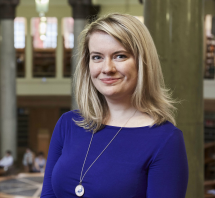Finding Africa seminar - Caitlin Stobie on Abortion and Southern African Women's Writing
- Date
- Monday 27 February 2017
Finding Africa - African Feminisms seminar series 2017
The Birth of 'New' Materialism? Abortion and Southern African Women's Writing
Caitlin Stobie
Monday 27 February, 5pm, Leeds Humanities Research Institute Seminar Room 1
Abstract
In her preface to Opening Spaces: Contemporary African Women’s Writing (1999), Zimbabwean author Yvonne Vera recalls a scene from Haile Gerima’s Sankofa wherein a pregnant woman’s corpse mysteriously gives birth after she is whipped to death (1). At the conclusion of her commentary, she returns to the theme of fertility by proclaiming that the authors of the collected stories are “witnesses, in that seemingly impossible birth” of African feminist fiction (5). Yet throughout Opening Spaces, it is the fear of maternity which recurs for those living in rural and urban environments previously colonised by the British ‘motherland’. Tracing tropes of abortion through selected stories written during the ‘birth’ of postcolonial southern African nations in the late twentieth century, this paper considers feminist responses to the shifting relationship between corporeal embodiment and political agency. The writers in this study focus on environments not as essentialised settings, but rather as interconnected and organic systems; creative forms which manifest in these stories include human, animal, vegetal, elemental or textual participants in ecosystems. In this respect, the writers appear to anticipate new materialist theories – particularly the concept of trans-corporeality, which states that human and more-than-human bodies are all enmeshed actors that constitute the environment (Alaimo 2010: 2). Paradoxically, however, they also trouble such purportedly ‘new’ theories by complicating the long history of environmental health and reproductive rights in post/colonial contexts. Illustrating how natural symbolism interacts with the artifice of narrative form, such fictions create spaces for complex, ambivalent perspectives on women’s agency to emerge.
About Caitlin Stobie

Caitlin Stobie is a PhD candidate at the University of Leeds, where she is co-director of the Leeds Animal Studies Network. Her research interests include postcolonial ecocriticism, posthumanism and critical animal studies. She has been published, or has work forthcoming, in Green Letters (2017), Interdisciplinary Studies in Literature and Environment (2017) and scrutiny2 (2016).
